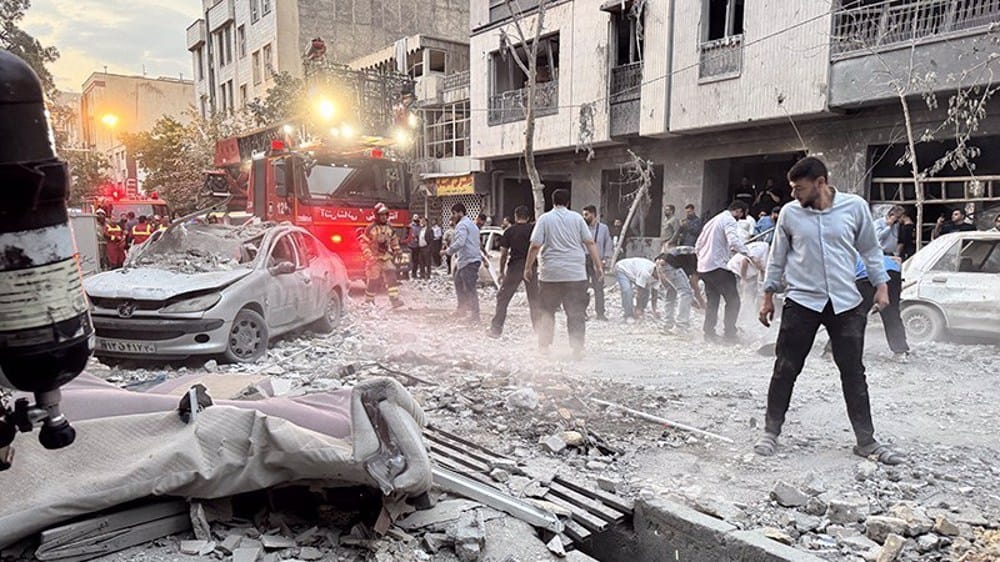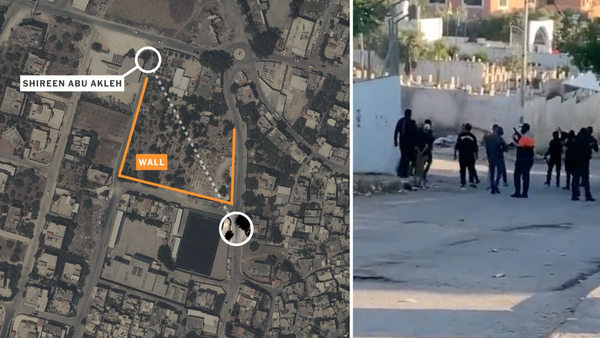Why did Israel attack Iran now?

What is it really trying to achieve... and can it succeed?
Last night, Israel launched a major military strike against Iran, killing a number of its senior military commanders and taking shots at key nuclear sites. The strike came only days before the sixth round of the US-Iran nuclear talks in Oman, and days before the convening of a major UN conference on a Palestinian state spearheaded by France and Saudi Arabia. Israel has stated that this will be a multi-day war; Iran threatened retaliation, but thus far has only sent a small drone attack that Israel easily countered. There's a lot we don't know, and this is only the beginning of what will likely be an intense and unpredictable week. It's way to soon to render any verdicts on the war or its implications. For now, I just wanted to throw out a few preliminary thoughts that might be relevant to those trying to make sense of Israel's attack based on what we know now: this was not a pre-emptive attack, but rather the expansion of an ongoing regional war; regime collapse, not the nuclear program, might be Israel's real goal; and whether Israel had American support probably depends on if it succeeds.
First: Israeli spokesmen have called this a pre-emptive attack, but it was not. Pre-emption means responding to an immediate threat of attack, striking first before getting hit yourself. Israel's strike was perhaps a preventive attack, aimed at a building but not imminent threat of Iranian nuclearization. This is reminiscent of 1967, when Israel similarly claimed to have launched a pre-emptive strike against Egypt even though the peak of that spring's crisis had long passed, Egyptian forces were not preparing an attack, and everyone was working on a diplomatic solution; its motivation was to to prevent Egypt from locking in an advantageous position in the Sinai and the Red Seas through diplomacy, not to forestall an impending Egyptian attack. Israel argued that its war was pre-emptive rather than preventive because it understood the implications under international law: states have the right to pre-emption, while preventive war is illegal. That has implications for legal arguments about the status of the occupied territories which continue today nearly sixty years later.
Even calling it a preventive war in this case is a stretch, though. It's true that the IAEA declared Iran as non-compliant with its nuclear obligations the other day, and it's true that reporting has indicated that Iran has enriched enough uranium to produce multiple nuclear warheads. But Iran was also deep into negotiations with the United States over a return to the nuclear agreement that the Trump administration tore up seven years ago without justification or cause. The sixth round of talks was scheduled for this weekend in Oman, and while the public signals coming out of both Washington and Tehran about the talks were pretty negative they still continued. If Israel was preventing anything with this attack, it was preventing diplomatic progress between Washington and Tehran – while likely throwing into disarray next week's plans for the UN meeting on Palestine where multiple countries were reportedly set to recognize a Palestinian state. It almost certainly also was intended to prevent movement on any of Benjamin Netanyahu's many personal political crises, as he has done throughout the Gaza hostage/ceasefire talks. Under any interpretation, Israel's attack is clearly illegal under international law, not that anyone seems to care anymore.
Israel's attack on Iran is best understood neither as pre-emptive nor preventive, but as a continuation of its attempt to remake the Middle East through force. Israel has been escalating its shadow war with Iran dramatically over the last year, most notably with the decapitation and devastation of Hezbollah in Lebanon but also with assassinations, bombings and strikes against Iranian assets around the region and inside Iran itself. In each of these attacks, it has demonstrated astonishing degrees of military capability and penetration of its adversary's communications and organizational networks, and in each case has faced little by way of serious retaliation (though, as I wrote a couple of months ago, it remains unclear whether Iran actually threw everything it had at Israel in the two rounds of missile strikes or was calibrating its response). That military success and lack of meaningful response has clearly emboldened Netanyahu and the IDF, which seem to believe that they can strike anywhere with impunity and that they can safely ignore critics at home and abroad. And the reporting that this attack on Iran has been some nine months in the making, and involved pre-deployed drones smuggled into Iran, suggests that the timing is based on opportunity not imminent threat.
Second: the nuclear program is a target and a trigger, but the attack might have bigger goals. It has long been conventional wisdom that Israel could not seriously set back the Iranian nuclear program through unilateral military action. Bombing and assassinations would set the program back for a few months, even a year, but that Iran would quickly recover. The risk of "mowing the lawn" to buy time in Iran was always triggering an Iranian dash to test a nuclear weapon. It would not surprise me if that's what Iran now does – though I would be shocked if Israel hadn't prepared for that contingency as well. The limited damage reported at Iranian nuclear sites today offers nothing to contradict that, but it's early – one lesson of the attack on Hezbollah is that Israel seems to have extreme degrees of visibility into these things, and has developed novel methods to attack them.
The pattern of attacks in the first day of Israeli strikes actually suggests that the target of the attack is the regime itself, not necessarily the nuclear program. A few months ago, I wrote this:
The collapse of [Syrian] regime military forces — in part because smothering sanctions had hollowed out the Syrian state, years of conflict had degraded the willingness of conscript soldiers to fight for the regime’s survival, and Israeli military strikes had suddenly shifted the balance of power by decimating Hezbollah and taking out Iranian assets across the country — had to send warning flags about Iran’s own stability.
Perhaps Israel hopes that a decapitation strike against Iran's military leadership, in the wake of repeated rounds of popular uprisings and the ongoing economic effects of American and global sanctions, will trigger a popular uprising in Iran as well and the collapse of the Iranian state? That seems highly unlikely, and it's not even obvious that a regime which emerged from the rubble of Iranian state failure or regime collapse would be better. But it can't be ruled out as either a goal or as a high-impact/low-probability outcome. Most likely, the Israeli attack has two tracks, giving top priority to setting back the nuclear program, but hoping that the process could trigger Iranian regime collapse.
Third: One of the biggest questions right now is whether Israel had American support and prior approval for the attack. The reporting on this is all over the place, likely intentionally so. A day before the attack, the reports circulated that Trump had told Israel not to attack until the talks had failed; later reporting claims that this had been intentional disinformation designed to keep Iran from mobilizing and hiding its assets. Early reports (and official statements) suggested an American effort to distance itself from the attack – the famous line from 1967, "you will only be alone if you go it alone" even made an appearance – but more recent comments suggest more coordination.
It does seem hard to believe that the US would endorse an attack in the midst of its own showcase negotiations, but perhaps Trump somehow thought that it would improve his bargaining position by sending the Iranian leadership a message about the costs of the talks failing – which would be a profound misunderstanding of Iranian calculations, but one could see Trump talking himself into it. I thought that Netanyahu was bluffing because Trump really seemed serious about the nuclear talks (for more serious than I expected) – and because the Gulf states, whose leaders and money he loves, had made clear that they did not want a war with Iran at this time.
I suspect that the absence of any serious American foreign policy apparatus gave Netanyahu an opening. Who speaks for the US or shapes its decisions with the NSC disbanded and half its experts fired, no National Security Advisor (unless you count Rubio's multiple hats), the State Department and intelligence agencies debilitated and cowed, and Trump's White House utterly consumed with its efforts to provoke constitutional crisis and even civil war through its ICE raids and deployment of the National Guard and Marines to California (not to mention Saturday's big stupid military parade in DC)?
I strongly suspect that Trump's meandering, incoherent messages talking to Netanyahu gave Israel the leeway it needed to make the case that there had been no "red light". Their gamble is that if they succeed, Trump will take credit; if they fail, Trump would probably hang Netanyahu out to dry politically, but after endless American support for their war crimes in Gaza they don't really worry about any serious American aid cuts or response. But if the war goes south, Gulf states and oil shipping get targeted, missiles and other Iranian retaliation attacks start getting through, and the lack of an endgame become clear, Trump will take no responsibility (as is his way) and make sure that everyone blames Netanyahu for it.
More as things develop...



